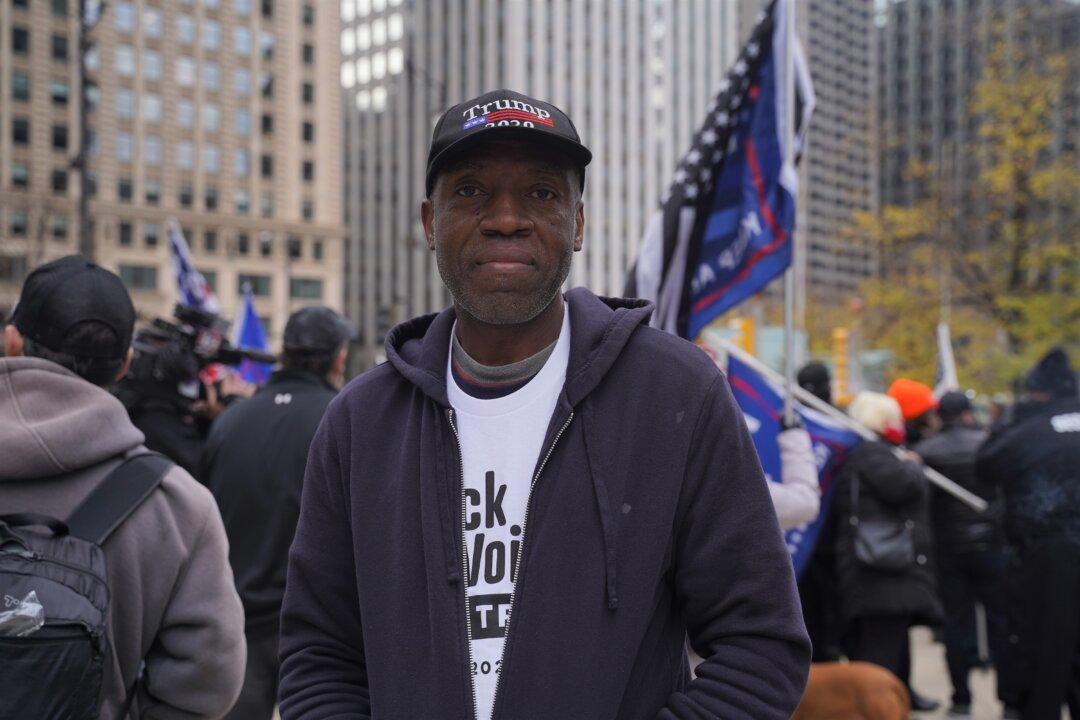CHICAGO—President Donald Trump won a larger share of both black and Hispanic votes than he did four years ago, according to nationwide voter surveys and exit polls.
Estimates on how much he gained among these groups varies, as polling is imprecise, but the polls agree that he gained. Edison Research estimates Trump’s share of black votes increased by four points, to 12 percent from 8 percent.





